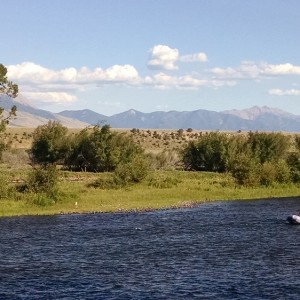The Stream, August 11: Typhoon Contaminates Taiwan Drinking Water
The Global Rundown |
Flooding from Typhoon Soudelor contaminated drinking water for millions of people in Taiwan. Communities in Palestine struggled with water shortages, a heatwave and dry conditions forced Poland to cut power supplies, and officials banned fishing in a national park in the United States due to drought. Conservationists raised concerns about tigers living in the path of a river-linking project in India, and Caribbean nations worried about extensive seaweed blooms. Scientists used seismic sensors to track glacial meltwater in Alaska and Greenland.
“This has been the worst year we’ve seen. We need to have a regional effort because this unsightly seaweed could end up affecting the image of the Caribbean.”–Christopher James, chairman of the Tobago Hotel and Tourism Association, on massive blooms of sargassum that are washing up onto beaches in the Caribbean to the detriment of the tourism industry. Nutrient runoff from land and warmer ocean temperatures may be driving the blooms. (Guardian)
By The Numbers |
5 million people Number in Taiwan affected by contaminated drinking water supplies due to flooding from Typhoon Soudelor. Forbes
3 towns Number in Palestine that are struggling with water shortages. Residents say they are receiving less water than neighboring Israeli communities, though the water company disputes the claim. Ynetnews
24 tigers Number that live in India’s Panna National Park, parts of which could be submerged by a project designed to connect the Ken and Betwa rivers. The project is part of a larger plan to link India’s rivers and use the water for development. Guardian
4,000 megawatts Power production shortage in Poland, where a heat wave is driving up demand while shortages of water used to cool coal-fired power plants are limiting production. Reuters
Science, Studies, And Reports |
Seismic sensors can now be used to track meltwater flowing through glaciers, according to a study published in Geophysical Research Letters that outlines the method. Researchers used the technology to study glaciers in Alaska and Greenland. UT News
On The Radar |
Fishing is now banned in many rivers and streams in Washington state’s Olympic National Park due to a severe drought. The ban is meant to protect trout and salmon populations that are struggling with low river flows and high water temperatures. Reuters
A news correspondent for Circle of Blue based out of Hawaii. She writes The Stream, Circle of Blue’s daily digest of international water news trends. Her interests include food security, ecology and the Great Lakes.
Contact Codi Kozacek






Leave a Reply
Want to join the discussion?Feel free to contribute!